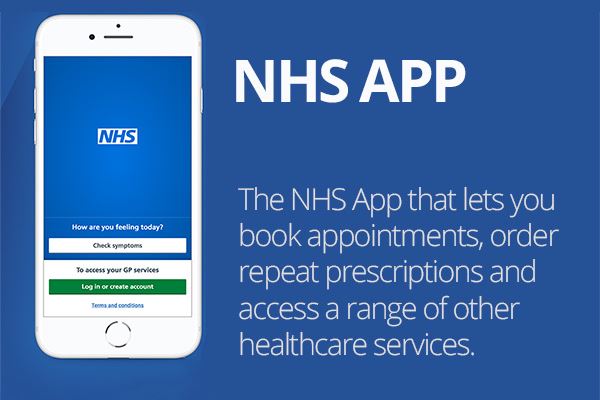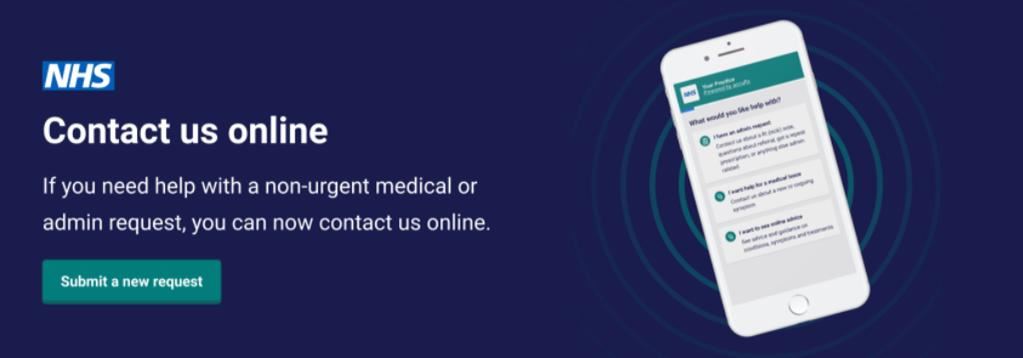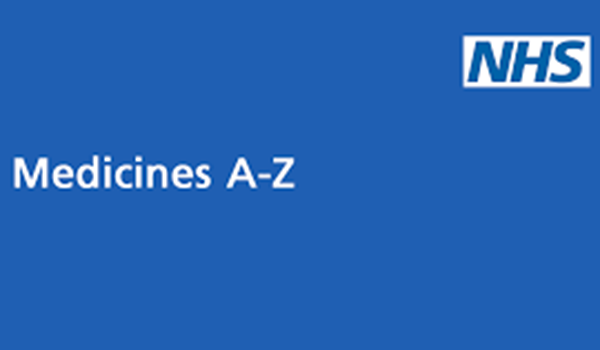Prescriptions
Repeat Prescriptions
To order a repeat prescription, please either:
Request online:
- Via SystmOnline- (also link at the top of the page.)
- NHS App - this is a self-registration process and may not require input from the practice.
- Email the request to prescriptions.cds@nhs.net - please ensure you include the personal details such as full name, date of birth and address of the person.
- Via website - no need for usernames or passwords. Select "I have an Admin Query"
Please note: For patient safety reasons, we do not usually take prescription requests over the phone.
In some specific cases such as for the elderly, vulnerable or housebound, telephone orders may be accepted. However, this may still not be possible for patients who have long medication lists and those who are unsure of the exact medications they want to order.


Paper Requests
We prefer the above methods of ordering however you are still able to use paper requests for repeat prescriptions. Please leave your completed prescription counterfoil in the postbox out side the surgery.
Even though you order via paper, we will electronically send your completed prescription to your nominated pharmacy. If you do not have a nominated pharmacy, we will send your prescription to EVANS PHARMACY (next door).
If you DO NOT wish to have your prescription sent to Evans, please let your preferred pharmacy know, as they will be able to set your preference for you. Alternatively, you can change this preference via the NHS App at any point.
Electronic Repeat Dispensing (eRD)
If you get regular or repeat prescriptions, you could save time by switching to electronic Repeat Dispensing (eRD).
eRD sends your prescriptions electronically from your GP surgery to a pharmacy of your choice. It’s easy to use and you don't need a computer or electronic device. Ask your GP or pharmacist if this is suitable for you and they can set it up for you.
eRD allows your GP to prescribe your regular medicines for up to a year. It’s reliable, secure and confidential. Your regular prescriptions are stored securely on the NHS database, so they'll be ready at the pharmacy each time you need them.
Using eRD you can:
- save time by avoiding unnecessary trips or calls to your GP every time you need to order a repeat prescription
- order or cancel your repeat prescriptions online (if your GP practice offers this service)
- pick up your repeat prescriptions directly from your pharmacy without having to visit your GP
- spend less time waiting for your prescription in the pharmacy or GP practice
- save paper – you won’t need a paper prescription to collect your medicine from the pharmacy
For more information about eRD and how it works, ask at your GP surgery or pharmacy, or visit the website.
Schools & Medication
Prescribing non-prescription (over the counter) medication in nurseries and schools.
Direct Link to Article on BMA Website
Non-prescription /over the counter (OTC) medication does not need a GP signature/authorisation in order for the school/nursery/childminder to give it.
The 'The Statutory Framework for the early years foundation stage', which governs the standards of institutions looking after and educating children, used to include a paragraph under specific legal requirements - medicines that stated:
'Medicines should only be taken to a setting when this is essential and settings should only accept medicines that have been prescribed by a doctor, dentist, nurse or pharmacist.'
This has now been amended to read ‘Prescription medicines should only be taken’...
The previous working resulted in some parents making unnecessary appointments to seek a prescription for an OTC medicine so that it can be taken in nurseries or schools. We would like to remind practices that the MHRA licenses medicines and classifies them when appropriate as OTC (P or GSL), based on their safety profiles. This is to enable access to those medicines without recourse to a GP, and the classification applies to both inside and outside the educational environment.
It is appropriate for OTC medicines to be administered by a member of staff in the nursery or school, or self-administered by the pupil during school hours, following written permission by the parents, as they consider necessary. It is a misuse of GP time to take up an appointment just to acquire a prescription for a medicine wholly to satisfy the needs of a nursery/school.
In 2015, the GPC wrote to the Department of Children, Schools and Families seeking an amendment to this paragraph in the EYFS Statutory Framework, who confirmed in a letter that an FP10 is not required, and as a result they have now updated their guidance to clarify that this is only applicable for prescription drugs, whereby non-prescription medication can be administered where there is parents' prior written consent.
The Statutory Framework for the EYFS (Early Years Foundation Stage) outlines the policy for administering medicines to children in nurseries/preschools 0-5 years:
“The provider must promote the good health of children attending the setting. They must have a procedure, discussed with parents and/or carers, for responding to children who are ill or infectious, take necessary steps to prevent the spread of infection, and take appropriate action if children are ill.
Providers must have and implement a policy, and procedures, for administering medicines. It must include systems for obtaining information about a child’s needs for medicines, and for keeping this information up-to-date.
Training must be provided for staff where the administration of medicine requires medical or technical knowledge. Prescription medicines must not usually be administered unless they have been prescribed for a child by a doctor, dentist, nurse or pharmacist (medicines containing aspirin should only be given if prescribed by a doctor).
Medicine (both prescription and non-prescription) must only be administered to a child where written permission for that particular medicine has been obtained from the child’s parent and/or carer. Providers must keep a written record each time a medicine is administered to a child, and inform the child’s parents and/or carers on the same day, or as soon as reasonably practicable”.
Further guidance for pupils at schools with medical conditions, including templates, is available on the Gov.uk website.
Page created: 29 November 2022




